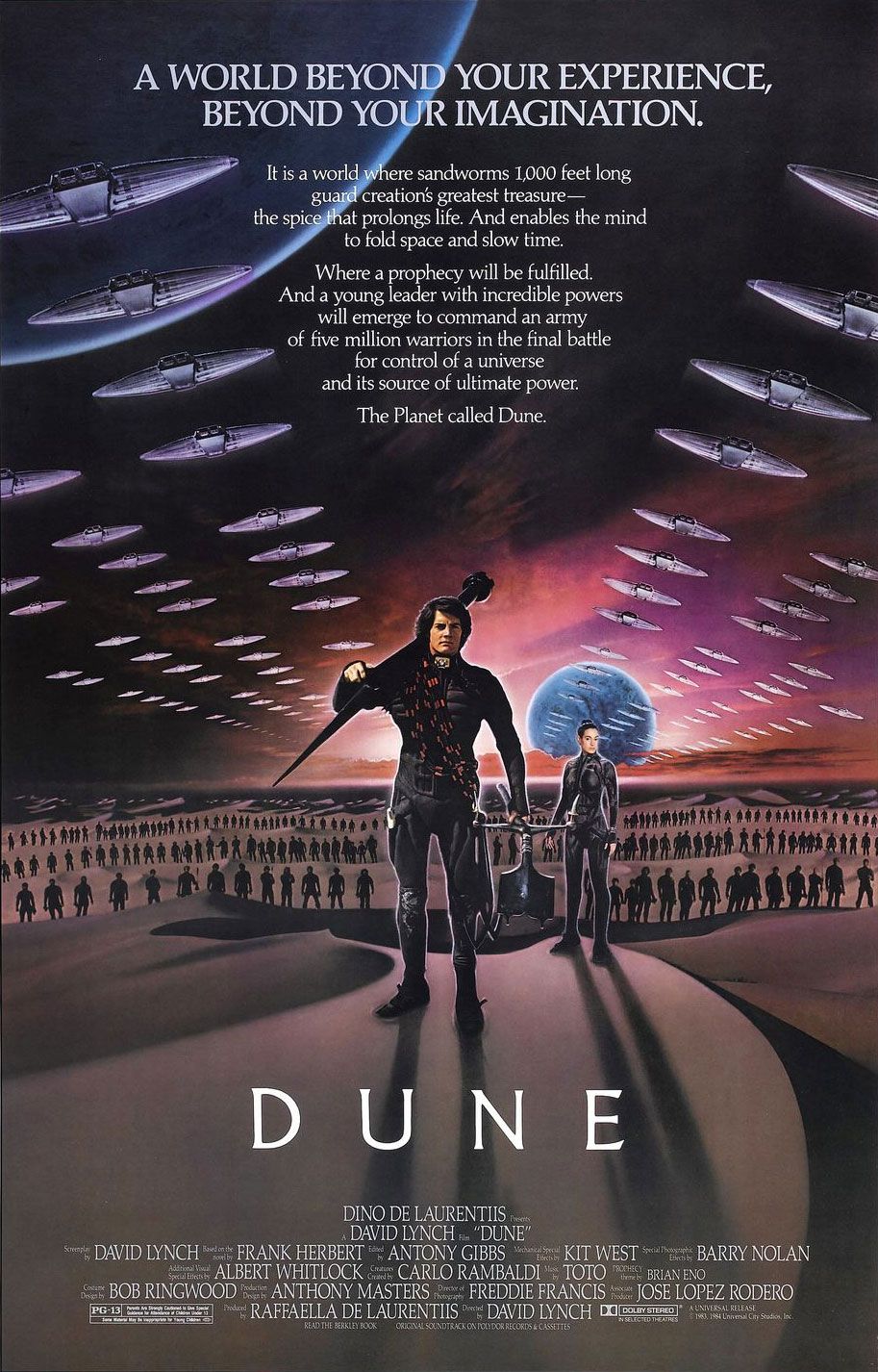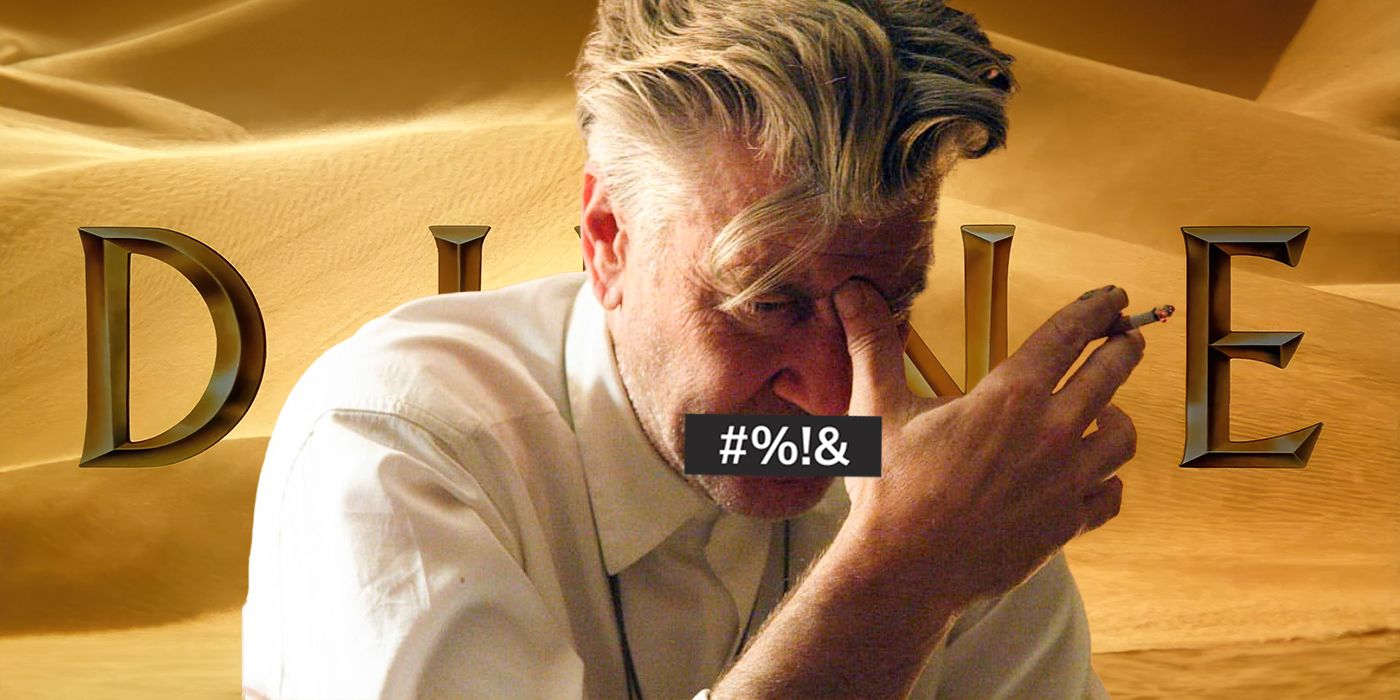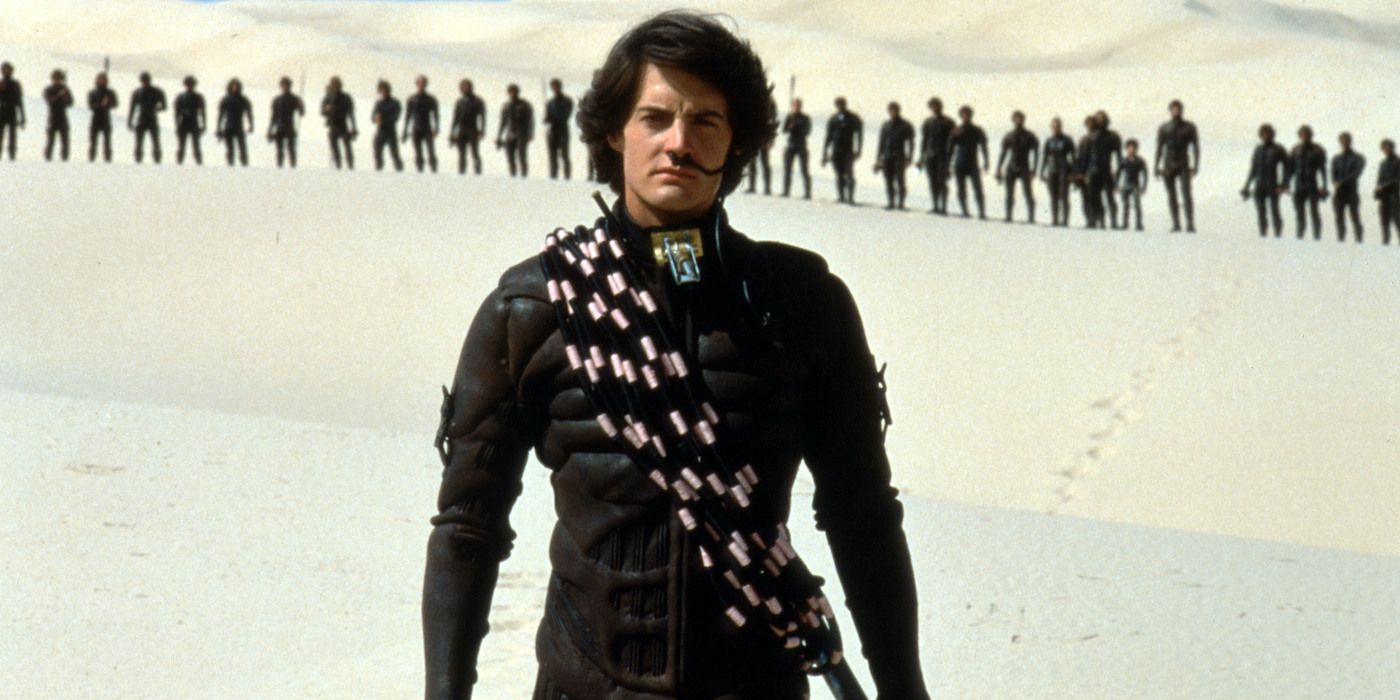The Big Picture
- David Lynch's Dune is praised for its whimsical wonder and imaginative atmosphere, offering a fitting introduction to his collaboration with Kyle MacLachlan.
- The film crams too much detail and focuses too heavily on Paul, missing the complexity of the source material and rushing towards a lackluster conclusion.
- Despite its strengths in representation, the adaptation falls short due to structural and narrative flaws, leaving it as a fascinating failure with untapped potential.
Though it has long been considered to be a misfire of an adaptation, there is something quite fascinating about David Lynch’s Dune. Yes, the filmmaker would ultimately distance himself from the movie after he said that he was not given final cut. However, the enduring strangeness and vibrancy of his vision still shine through in some key moments that can’t be fully smothered out. Many of its strengths do get regrettably lost in a rushed conclusion that represents a greater misunderstanding of the source material that holds it back from being as good as it could and should have been. Still, despite its many flaws, it serves as an interesting time capsule for both Lynch’s career and the genre more broadly. While it loses itself in the end, it remains worth seeking out for all it managed to achieve along the way.

Dune (1984)
A Duke's son leads desert warriors against the galactic emperor and his father's evil nemesis to free their desert world from the emperor's rule.
- Release Date
- December 3, 1984
- Director
- David Lynch
- Cast
- Kyle MacLachlan , Virginia Madsen , Francesca Annis , Leonardo Cimino , Brad Dourif , Jose Ferrer , Linda Hunt , Freddie Jones
- Runtime
- 137 Minutes
David Lynch Adapting the Unadaptable
Released in 1984, it first and foremost deserves a great degree of credit for being the first work to complete an adaptation of Frank Herbert’s iconic science fiction novel of the same name. Though the term “unadaptable” is often overused in discussing works like Dune, it is an undoubtedly dense story with whole histories and peoples that would prove too daunting to take on for others. Lynch bites off quite a lot of this and brings life to the story through the details. Be it the handmade sets, meticulous miniatures, or the chaotic performers, there is a real sense of more whimsical wonder that is woven throughout its science fiction world.
At the center of this is a fresh-faced Kyle MacLachlan, who made his acting debut playing protagonist Paul Atreides. Though he would go on to collaborate with Lynch on far more successful future projects like Twin Peaks that felt more unrestrained, it is intriguing to see where their partnership began while knowing all the places it would expand into. In this way, while it remains quite imaginative on its own, Dune best serves as a fraught yet fitting introduction to what the two would achieve together even as this first collaboration largely fell short.
To best understand this adaptation, one need only look at the giant worms that populate the planet of Arrakis where it is set. Mirroring this, the film often seems like it might be able to wrangle the beast that is Herbert’s story. The opening hour is patient as it peers into all the corners of the world. It can get caught up in exposition, including in the very opening scene that relies on some clunky narration that will increasingly become its fallback, but the moments where we get to breathe in the spice along with Paul feel rich. It does play up the ridiculousness and camp the longer it goes on, which may elicit a chuckle. At the same time, while all this plays out, it still takes the story and its characters seriously when it counts.
'Dune' Crams Too Much In and Diverts From the Book
As the film approaches the conclusion, it starts to suddenly speed ahead. Some of this comes from how it is attempting to cram in so much detail and development into a single feature. The fact that it is shorter than the Denis Villeneuve's adaptation, which only covered around half the first book, makes it clear that this is the rare instance where a story being split into multiple films was the right call. Without that room to linger on key thematic and narrative elements, much gets lost as we barrel on.
In particular, the story feels much too enamored with Paul as the “hero” of this story than Herbert's work ever did. When he takes to training the Fremen before leading them into battle, these sequences don’t carry the same sense of skepticism and self-reflectiveness that cuts deeper into the source material. While they can be well-composed, like when we see Paul walking out ahead of his men into the desert where he plans to draw out a worm to ride, there is an emptiness underlying these shots. For those who are aware of the direction this story goes in future books, the world is not nearly as straightforward as it feels here. Paul is a more flawed figure and this first cinematic crack at telling his story overlooks that.

Why David Lynch Hates His 'Dune' So Much
He doesn’t even want to watch Denis Villeneuve’s version.One can criticize until they are blue in the face, or eyes, the way many of the effects don't hold up to scrutiny all these decades later. What proves to be the more disappointing element is when it gets swept up in the spectacle of battles that Paul leads without any sense of curiosity about what underlies his psychology. Many of them are well-staged and executed, though there is little to latch onto beyond that. We get a whole host of narration that fills us in on some of what is taking place offscreen, but the film doesn’t take more than a moment to grapple with this. Instead, it is hellbent on getting to a conclusion that it doesn’t earn. Any of the darker complexity felt in the novel and the superior recent adaptation is sanded down for what begins to increasingly feel like a speedrun of a more conventional adventure film.
That is where the lingering disappointment of this first adaptation of Dune can’t be overlooked. It was not in the flourishes that Lynch seemed most fascinated by. These elements are actually the most compelling components that have turned it into a cult film in some circles. Indeed, there have even been some who do extensive fan edits to try to emphasize its strengths and smooth out its many flaws. Unfortunately, all the rearranging can’t fully fix the structural and narrative shortcomings that are at the core of the film. No matter how you look at it, it only ever scratches the surface of the source material by the time it all comes together. Despite the promising potential of much of its beginning, it becomes bogged down by a need for closure when there was much more story to tell even just in the first book. It remains a fascinating failure that has many merits but is a failure all the same.
Rating: C
Dune is available to watch on Max in the U.S.

